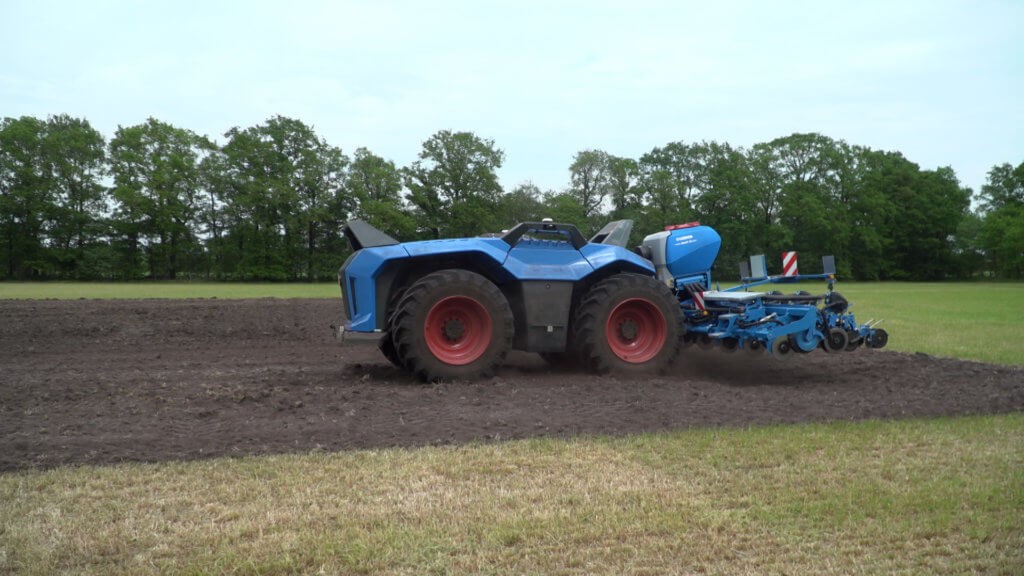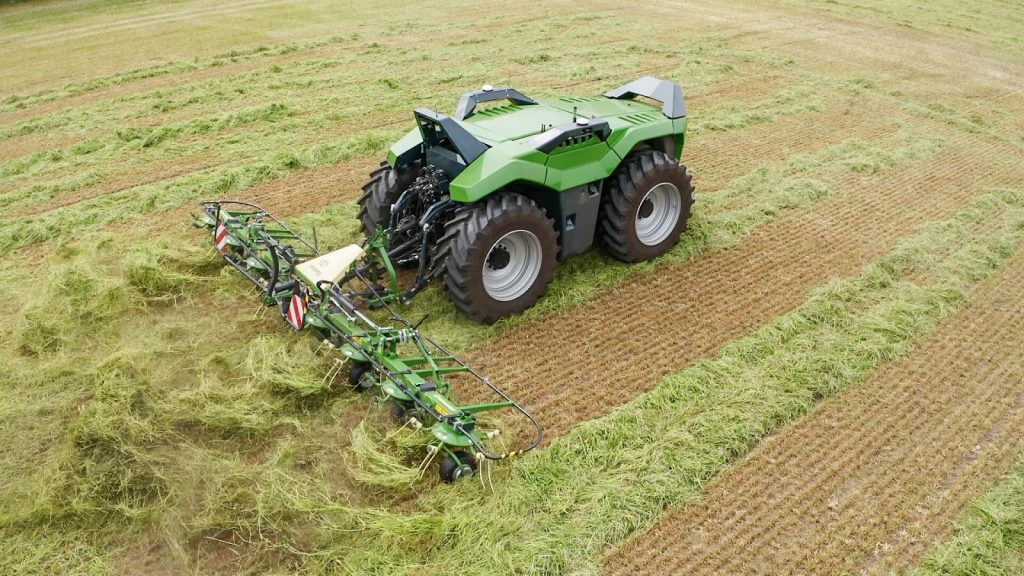
Apex.AI, the developer of safety-certified software for mobility and other autonomous applications, announced today a joint product development project for commercial-ready autonomous farming systems for the Combined Powers project and concept vehicles developed by Krone, a manufacturer of agricultural machinery and precision agricultural technology, and Lemken, a company that manufactures innovative machines for tillage, sowing, and sustainable plant care.
The project’s autonomous drive unit acts as a smart system that can plow, cultivate, sow, mow, turn, and swath. The companies are transitioning the concept carrier vehicle from the prototype to production stage by leveraging Apex.AI’s SDK (software development kit) that consists of Apex.Grace and Apex.Ida.
A U.S. company with German roots, Apex.AI has extensive knowledge in the fields of robotics and AI (artificial intelligence), with partnerships starting in the sectors of automotive with the likes of mobility service company MOIA and automaker Toyota and then agriculture with AGCO and Combined Powers. As in many other sectors, there is a shortage of skilled workers in agriculture. So, farmers are increasingly relying on digitization and automation to make optimal use of the available work capacity and are increasingly leveraging innovative technology including robots that assist in livestock breeding or machines that work the fields highly autonomously.
The commercial-ready Combined Powers vehicle, which has proven its performance in the fields, is designed to save farmers valuable time in the future while maintaining the precise quality of work. Key software functions of its architecture are based on the Robot Operating System (ROS), making it a logical decision to rely on the ROS-based Apex.AI products.
However, unlike ROS, Apex.AI’s products are certified by TÜV Nord for applications with special functional safety requirements and are suitable for commercial vehicle use. Due to that compatibility, the data obtained with the prototypes can be used directly in production development, so the software can be used for further development of the Combined Powers products for production.
“The partnership with Krone and Lemken is a win-win for all parties,” said Jan Becker, CEO of Apex.AI. “We are now working closely with both companies on a first project to familiarize the teams from the agricultural technology manufacturers with the suitability for series production and the possibilities of the Apex.AI products and methods. We will also evaluate our software as the framework and middleware solutions as part of the implementation phase of the VTE [robot] concept.”
“In working with Apex.AI, we see the opportunity to move from a development solution based on ROS and ROS 2 to a series solution based on Apex.Grace and being able to implement secure functions,” explained Manuel Volk, a developer at Krone.
“Apex.AI enables us to develop applications that are largely independent of the hardware used,” added Michael Nienhaus, a developer at Lemken, helping to accelerate the development process and reduce complexity.

In an earlier YouTube video discussing the Combined Powers project, other key product developers explained the concept.
“The operator plans the process, selects the fields, and then takes the machine to the field,” said Dr.-Ing. Matthias Müter, Technical Project Leader for the project. “Operation also means monitoring the machine all the time.”
The machine is operated from a mobile device, like a tablet or a mobile phone.
The implement forms an integral unit with the vehicle, allowing operation of the combination at optimum and fuel-efficient speeds, added Michael Kreyenhagen, Head of Pre-development at Krone.
The concept’s development provided additional benefits for Krone’s range of vehicle offerings, according to Alexander Grever, Team Leader, Krone.
“Researching into and developing autonomous driving is very important to us,” he said. “It helps us develop our existing machines by advancing driver assistance systems for auto-guidance and auto-steering, for example. Also, autonomous navigation allows us to rethink our present machines and processes and develop out-of-the-box solutions.”
In the future, company execs look forward to the primary benefits of more autonomous machines in the fields.
“As a customer, I expect from this product that it makes my work life easier, so I can take care of more important jobs around the farm, while the robots do the fieldwork,” concluded Kreyenhagen. “The role of the operator will change. It will follow that of milkers, for example. Milk production has long been automated. Highly automated field work will allow farmers to go back and do what they need to do in the first place.”

